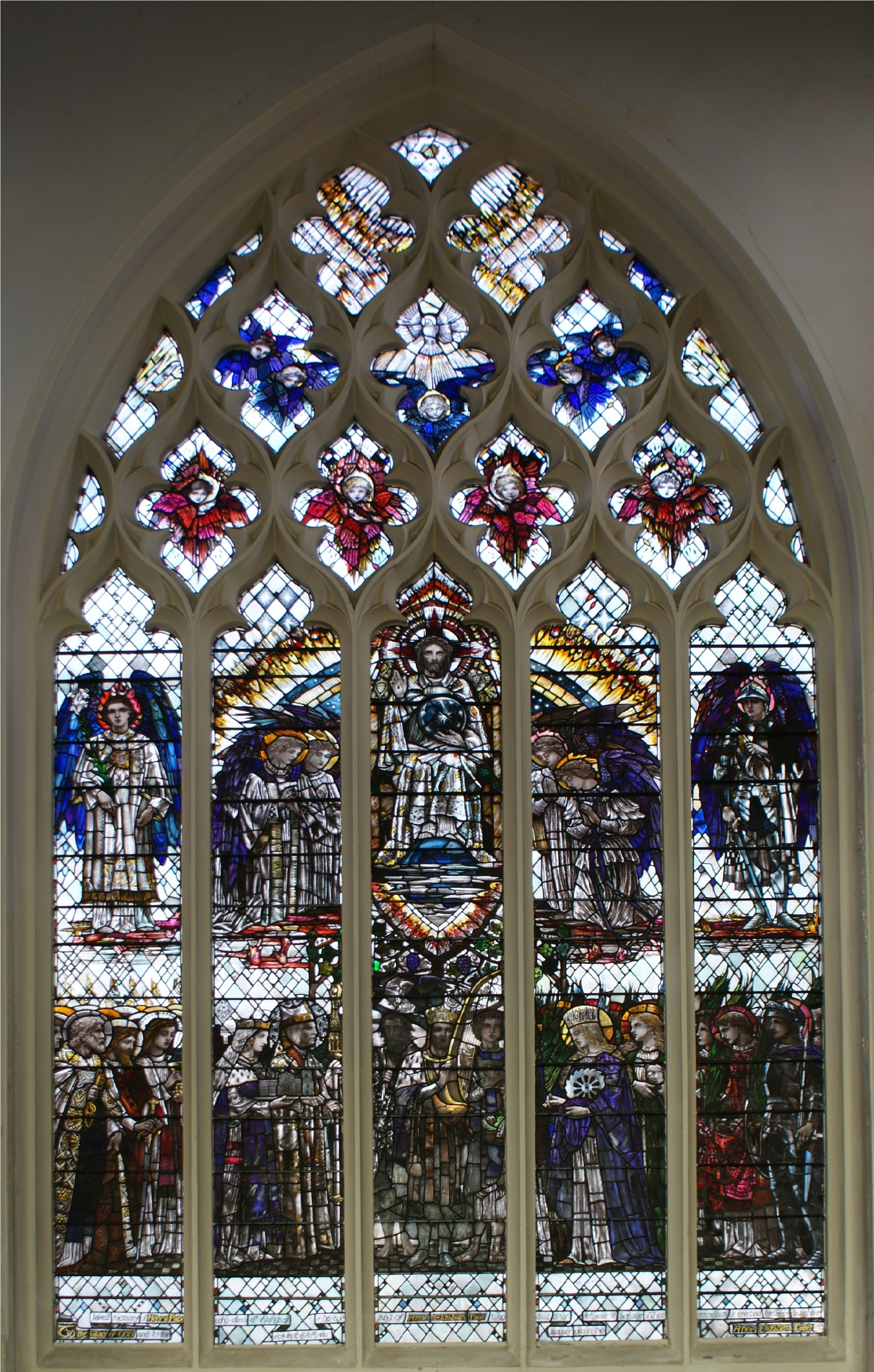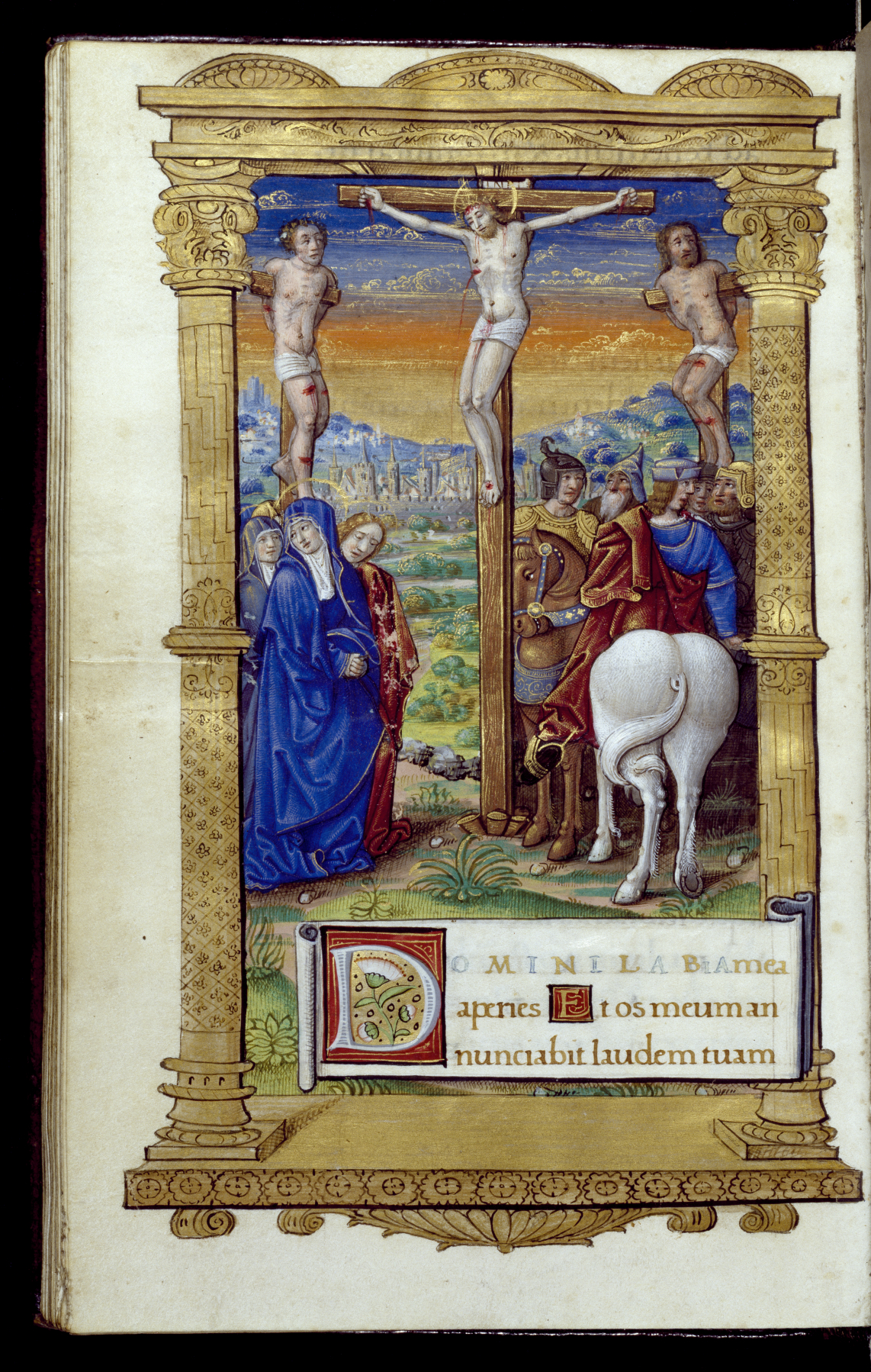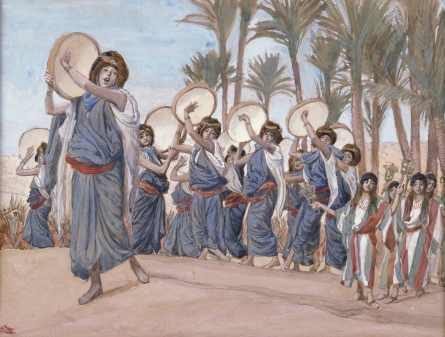|
Cantica
In the context of Christian liturgy, a canticle (from the Latin ''canticulum'', a diminutive of ''canticum'', "song") is a psalm-like song with biblical lyrics taken from elsewhere than the Book of Psalms, but included in psalters and books such as the breviary. Of special importance to the Divine Office are three New Testament Canticles that are the climaxes of the Offices of Lauds, Vespers and Compline; these are respectively Benedictus (Luke 1:68-79), Magnificat (Luke 1:46-55) and Nunc dimittis (Luke 2:29-32). There are also a number of Canticles taken from the Old Testament. Catholic Church Prior to the Pope Pius X's 1911 reforms, the following cycle of seven Old Testament Canticles was used at Lauds: * Sunday – The Song of the Three Holy Children () * Monday – The Song of Isaiah the Prophet () * Tuesday – The Song of Hezekiah () * Wednesday – The Song of Hannah () * Thursday – The (First) Song of Moses () * Friday – The Prayer of Habakkuk () * Saturday – T ... [...More Info...] [...Related Items...] OR: [Wikipedia] [Google] [Baidu] |
Te Deum
The ( or , ; from its incipit, ) is a Latin Christian hymn traditionally ascribed to a date before AD 500, but perhaps with antecedents that place it much earlier. It is central to the Ambrosian hymnal, which spread throughout the Latin Church with other parts of the Ambrosian Rite of Milan in the 6th to 8th centuries. It is sometimes known as the Ambrosian Hymn, although authorship by Saint Ambrose is unlikely. The term can also refer to a short religious service (of blessing or thanks) that is based upon the hymn. It continues in use in many contexts by several denominations. In particular it is the core of a short church service of thanksgiving held, often at short notice, to celebrate good news such as a military victory, the signing of a peace treaty, or the birth of a royal child. History Authorship of the hymn is traditionally ascribed to Saint Ambrose (died 397) or Saint Augustine (died 430). In 19th-century scholarship, Saint Hilary of Poitiers (died 367) ... [...More Info...] [...Related Items...] OR: [Wikipedia] [Google] [Baidu] |
Lauds
Lauds is a canonical hour of the Divine office. In the Roman Rite Liturgy of the Hours it is one of the major hours, usually held after Matins, in the early morning hours (between 3:00:00 and 5:59:59). Name The name is derived from the three last psalms of the psalter (148, 149, 150), the Laudate psalms, which in former versions of the Lauds of the Roman Rite occurred every day, and in all of which the word ''laudate'' is repeated frequently. At first, the word ''Lauds'' designated only the end, that is to say, these three psalms. Over time, ''Lauds'' came to be applied to the whole office. History Lauds, or the morning prayer or Office of Aurora, is one of the most ancient offices and can be traced back to Apostolic times. The earliest evidence of Lauds appears in the second and third centuries in the Canons of Hippolytus and in writings by St. Cyprian, and the Apostolic Fathers. Descriptions during the fourth and fifth centuries appear in writings by Ss. John Cassian, Me ... [...More Info...] [...Related Items...] OR: [Wikipedia] [Google] [Baidu] |
Christian Liturgy
Christian liturgy is a pattern for Christian worship, worship used (whether recommended or prescribed) by a Christian congregation or Christian denomination, denomination on a regular basis. The term liturgy comes from Greek and means "public work". Within Christianity, liturgies descending from the same region, denomination, or culture are described as ritual family, ritual families. When Christians meet for worship, they perform a liturgy (work), offering service to God in Christianity, God together. The majority of Christian denominations hold their principal church service on Sunday, the first day of the week, or sometimes called the Lord's Day. In some Christian denominations, liturgies are held daily, with these including those in which the canonical hours are prayed, as well as the offering of the Eucharistic liturgies such as Mass (liturgy), Mass, among other forms of worship. In addition to this, many Christians attend services of worship on holy days such as Christmas, As ... [...More Info...] [...Related Items...] OR: [Wikipedia] [Google] [Baidu] |
Reform Of The Roman Breviary By Pope Pius X
The reform of the Roman Breviary by Pope Pius X was promulgated by that Pope with the apostolic constitution '' Divino afflatu'' of 1 November 1911. The Roman Breviary is the title of the book obligatorily used for celebrating the Roman Rite Divine Office from the revision of Pope Pius V (apostolic constitution '' Quod a nobis'', 9 July 1568) to that by Pope Paul VI (apostolic constitution '' Laudis canticum'', 1 November 1970). Changes A minor matter was the printing in a separate section, called the Ordinary, of those parts of the Psalter that were to be recited frequently, perhaps several times in the same day, such as the invitatory, hymns for the seasons, blessings, absolutions, chapters, suffrages, the Lord's Prayer, Benedictus, Magnificat, Te Deum, etc.{{Cite web , title=CATHOLIC ENCYCLOPEDIA: Reform of the Roman Breviary , url=https://www.newadvent.org/cathen/16013a.htm , access-date=2023-06-25 , website=www.newadvent.org Much more radical was a completely new arr ... [...More Info...] [...Related Items...] OR: [Wikipedia] [Google] [Baidu] |
Judith
The Book of Judith is a deuterocanonical book included in the Septuagint and the Catholic Church, Catholic and Eastern Orthodox Christianity, Christian Old Testament of the Bible but Development of the Hebrew Bible canon, excluded from the Hebrew canon and assigned by Protestants to the Biblical apocrypha, apocrypha. It tells of a Judaism, Jewish widow, Judith, who uses her beauty and charm to kill an Neo-Assyrian Empire, Assyrian general who has besieged her city, Bethulia. With this act, she saves nearby Jerusalem from total destruction. The name Judith (), meaning "praised" or "Jewess", is the feminine form of Judah (son of Jacob), Judah. The surviving manuscripts of Greek translations appear to contain several historical anachronisms, which is why some Protestant scholars now consider the book ahistorical. Instead, the book is classified as a parable, Theological fiction, theological novel, or even the first Historical fiction#Historical novel, historical novel. The Cat ... [...More Info...] [...Related Items...] OR: [Wikipedia] [Google] [Baidu] |
Book Of Tobit
The Book of Tobit (), also known as the Book of Tobias, is a deuterocanonical pre-Christian work from the 3rd or early 2nd century BC which describes how God tests the faithful, responds to prayers, and protects the pre-covenant community (i.e., the Hebrews of the province of Judea). It tells the story of two families of Judah, that of the blind Tobit in Nineveh and of the abandoned Sarah in Ecbatana. Tobit's son Tobias is sent to retrieve ten silver Talent (measurement), talents that Tobit once left in Ray, Iran, Rhages, a town in Media (region), Media. Guided and aided by the angel Raphael (archangel), Raphael he arrives in Ecbatana, where he meets Sarah. A demon named Asmodeus kills anyone she intends to marry, but with the aid of Raphael the demon is exorcised and Tobias and Sarah marry. Tobias and Sarah then return to Nineveh, where Tobit is cured of his blindness. The book is included as a deuterocanonical in the Catholic Bible, Catholic and Eastern Orthodox Church#Bible, E ... [...More Info...] [...Related Items...] OR: [Wikipedia] [Google] [Baidu] |
David
David (; , "beloved one") was a king of ancient Israel and Judah and the third king of the United Monarchy, according to the Hebrew Bible and Old Testament. The Tel Dan stele, an Aramaic-inscribed stone erected by a king of Aram-Damascus in the late 9th/early 8th centuries BCE to commemorate a victory over two enemy kings, contains the phrase (), which is translated as " House of David" by most scholars. The Mesha Stele, erected by King Mesha of Moab in the 9th century BCE, may also refer to the "House of David", although this is disputed. According to Jewish works such as the '' Seder Olam Rabbah'', '' Seder Olam Zutta'', and '' Sefer ha-Qabbalah'' (all written over a thousand years later), David ascended the throne as the king of Judah in 885 BCE. Apart from this, all that is known of David comes from biblical literature, the historicity of which has been extensively challenged,Writing and Rewriting the Story of Solomon in Ancient Israel; by Isaac Kalimi; page 3 ... [...More Info...] [...Related Items...] OR: [Wikipedia] [Google] [Baidu] |
Song Of Moses
The Song of Moses is the poem which appears in Deuteronomy of the Hebrew Bible, which according to the Bible was delivered just prior to Moses' death on Mount Nebo. Sometimes the Song is referred to as Deuteronomy 32, despite the fact that Deuteronomy chapter 32 contains nine verses (44–52) which are not part of the Song. Most scholars hold that it was composed between the tenth and eighth centuries BCE, although dates as early as the twelfth century or as late as the fifth have been proposed. Biblical narrative According to verses 16–18 of Deuteronomy 31, YHWH met with Moses and his nominated successor Joshua at the " tabernacle of meeting" and told them that after Moses' death, the people of Israel would renege on the covenant that YHWH had made with them, and worship the gods of the lands they were occupying. YHWH told Moses to write down the words of a song and teach it to the community, so that it would be a "witness for Me against the children of Israel." Verse 22 ... [...More Info...] [...Related Items...] OR: [Wikipedia] [Google] [Baidu] |
Habakkuk
Habakkuk or Habacuc is the main figure described in the Book of Habakkuk, the eighth of the Twelve Minor Prophets in the Hebrew Bible. He is traditionally regarded as a prophet active around 612 BCE. Almost all information about Habakkuk is drawn from the book of the Bible bearing his name, with no biographical details provided other than his title, "the prophet". The name “Habakkuk” appears only in Habakkuk 1:1 and 3:1 in the Hebrew Bible, has uncertain etymology, and may derive from an Akkadian word for a fragrant plant or the Hebrew root meaning “embrace.” He is mentioned in the deuterocanonical Additions to Daniel, and outside the Bible, he is mentioned over the centuries in the forms of Christian and Rabbinic tradition. Habakkuk’s tomb is claimed by multiple sites, notably a traditional hillside location in northern Israel near Kadarim and a mausoleum in Tuyserkan, Iran. Habakkuk is commemorated in Christianity with feast days and celebrated through notab ... [...More Info...] [...Related Items...] OR: [Wikipedia] [Google] [Baidu] |
Song Of The Sea
The Song of the Sea (, ''Shirat HaYam''; also known as ''Az Yashir Moshe'' and Song of Moses, or ''Mi Chamocha'') is a poem that appears in the Book of Exodus of the Hebrew Bible, at . It is followed in verses 20 and 21 by a much shorter song sung by Miriam and the other women. The Song of the Sea was sung by the Israelites after their crossing the Red Sea in safety, and celebrates their freedom after generations of slavery and oppression by the Egyptians. The poem is included in Jewish prayer books, and recited daily in the morning shacharit services. The poem also comprises the first ode or hymn of the Eastern Orthodox canon, where it is known as the Song or Ode of Moses. It is also used in the Roman Catholic, Eastern Orthodox, and other Christian liturgies at the Easter Vigil when the history of salvation is recounted. These traditions follow Revelation 15:3 by calling it the "Song of Moses" (not to be confused with the Song of Moses in Deuteronomy). In Judaism, the poem f ... [...More Info...] [...Related Items...] OR: [Wikipedia] [Google] [Baidu] |
Song Of Hannah
The Song of Hannah is a poem interpreting the prose text of the Books of Samuel. According to the surrounding narrative, the poem, 1 Samuel 2:1–10, was a prayer delivered by Hannah to give thanks to God for the birth of her son, Samuel. It is similar to Psalm 113 and the Christian Magnificat. Contents and themes Hannah praises Yahweh, reflects on the reversals he accomplishes, and looks forward to his king. There is a movement in this song from the particular to the general. It opens with Hannah's own gratitude for a local reversal, and closes with God's defeat of his enemies – a cosmic reversal. Through the theme of reversal, the Song of Hannah functions as an introduction to the whole book. Keil and Delitzsch argue that Hannah's experience of reversal was a pledge of how God "would also lift up and glorify his whole nation, which was at that time so deeply bowed down and oppressed by its foes." The reference to a king in verse 10 has provoked considerable discussion. B ... [...More Info...] [...Related Items...] OR: [Wikipedia] [Google] [Baidu] |
Hezekiah
Hezekiah (; ), or Ezekias (born , sole ruler ), was the son of Ahaz and the thirteenth king of Kingdom of Judah, Judah according to the Hebrew Bible.Stephen L Harris, Harris, Stephen L., ''Understanding the Bible''. Palo Alto: Mayfield. 1985. "Glossary", pp. 367–432 In the Biblical narrative, Hezekiah witnessed the destruction of the northern Kingdom of Israel (Samaria), Kingdom of Israel by the Neo-Assyrian Empire under Sargon II in . He was king of Judah during the Assyrian siege of Jerusalem by Sennacherib in 701 BC.Encyclopædia Britannica (2009)Hezekiah Encyclopædia Britannica Online, 12 November 2009. The Historicity of the Bible, historical accuracy of King Hezekiah’s reign is a topic of academic discussion, with scholars debating the reforms and Assyrian events based on textual, archaeological, and external evidence. He is considered a very righteous king in both the Second Book of Kings and the Second Book of Chronicles. He is also one of the more prominent kings o ... [...More Info...] [...Related Items...] OR: [Wikipedia] [Google] [Baidu] |







